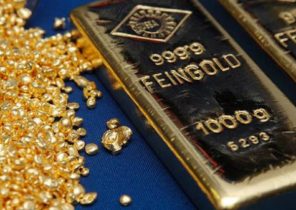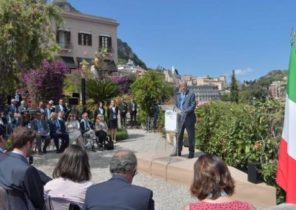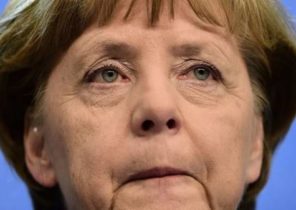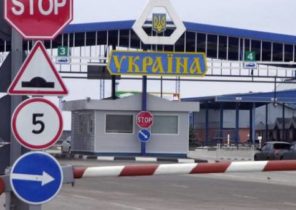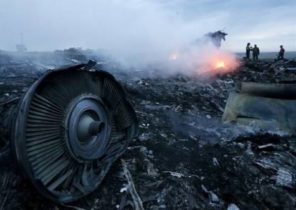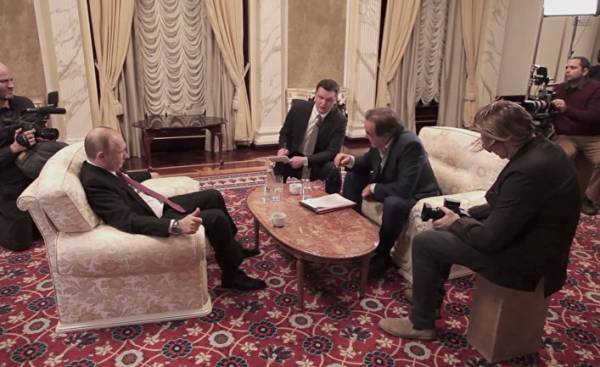
Four hour interview Oliver stone with President of Russia Vladimir Putin can not be called a valuable lesson in journalism. Mr. stone inexperienced and incompetent interviewer, so he was unable to force Mr. Putin to say something that the world never heard from him before. Viewing these interviews for fun — also a very questionable idea: this documentary series contains quite a lot of boring dialogues and more inserts, such as footage of Mr. Putin and Mr. stone together, watching “Dr Strangelove”.
Nevertheless, the documentary series “Interview with Putin”, which was released on Showtime in June, still probably worth a watch to perform a special kind of relationship.
Many Americans wonder why Mr. trump admires Mr. Putin. As might influential and wealthy American to admire the tyrannical, corrupt leader of a country that considers the US its enemy?
Oddly enough, in “Interview with Putin”, you can find psychological and intellectual explanation of this phenomenon. It is obvious that Mr. stone feels the same admiration for Mr. Putin and Mr. trump. Removing the tape your conversation with the Russian President, Mr. stone unknowingly captured the conditions that underpin this kind of admiration. If you ever want to experience the admiration of a particular dictator, you will need to try to comply with all these conditions.
Condition 1: ignorance. The situation is largely affected by the fact that Mr. stone, apparently, has a rather vague and often imprecise views about the biography of Mr. Putin, and about Russia’s history. The ignorance of Mr. stone allows him to hear the lie Mr. Putin, without subjecting it to critical evaluation.
In the second episode, answering questions about the state of democracy in Russia, Mr. Putin says there are “hundreds of TV stations”, which the government could not have controlled even if he wanted to. This is not true, however, Mr. stone does not dispute this statement.
In the third episode Mr. Putin says a long and complicated story about the origins of the war in Ukraine, the culmination of which is his assertion that the war began after the staff of the nationalist secret services kidnapped ethnic Russians in Eastern Ukraine. Obviously, Mr. stone believed in the imagination.
Condition 2: the reverence for the power and luxury. The second episode is a story of a kind of seduction. Mr. Putin shows Mr. stone their stables. Then they watch the film. Then Mr. stone looks like Mr. Putin plays hockey, and flatters him, praising the sportsmanship of the Russian President.
Then Mr. stone raises the delicate subject of the rights of the LGBT community in Russia, and Mr. Putin is willing to use this opportunity to hint at his appeal and to declare his homophobia: he says he won’t go in the bathroom with a homosexual because he doesn’t want to seduce him and because he’s a black belt in judo. In other words, this hypothetical homosexual will find Mr. Putin’s very attractive, and Mr. Putin will have to beat him. And Mr. Putin, and Mr. stone, apparently, find this scenario very funny.
In the third episode, Mr. Putin shows Mr. stone his residence in Sochi. Mr. stone really impressed. Then they are in the Kremlin. “You are very spacious, says Mr. stone. — Could you do me a small tour?”
Mr. Putin is Mr. stone’s office, where shown on the screen — perhaps in a circle — the famous speech of Mr. Putin in 2007, in which he criticized the West and NATO, and then to another room, where the Russian President keeps a portrait of his father, who served in the Navy in the Crimea. At the end of this episode, Mr. stone recounts Mr. Putin his own speech on the annexation of the Crimea. The impression is that Mr. stone likes to say the words g-on Putin. And Mr. Putin would definitely like to hear his own words, though translated into English.
Condition 3: common biases. Mr. stone and Mr. Putin is afraid of Muslims. This common fear and distrust pervades the greater part of their conversation. In the first episode, Mr. stone reported to Mr. Putin that William Casey (William J. Casey), who headed the CIA in the 1980’s, planned to “motivate the Muslims of the Caucasus and Central Asia” against the Soviet Union. (Obviously, Mr. stone does not know that the Caucasus and Central Asia are two separate region separated by hundreds of miles.)
In the second episode, Mr. stone sympathizes with Mr. Putin: “you mentioned Earlier that the number of ethnic Russians is decreasing”. He said these words, apparently believing that Russia is in danger. But Mr. Putin has good news: “fortunately, we overcame this situation. We have the third consecutive year, natural population growth, including in regions with traditional accommodation predominantly Russian population.” The impression that Mr. Putin is actually the Savior of the white race.
Condition 4: the inability or unwillingness to separate fact from fiction. During the interview, Mr. stone asks Mr. Putin to questions provided in advance — perhaps even written by the staff of the Russian President. Such pre-written questions are the hallmark of the annual press conference of Mr. Putin with Russian journalists.
In the first episode, for example, after a few clumsy questions about the biography of the Russian President, Mr. stone suddenly asked Mr. Putin about the attempts on his life. Mr. stone said that Mr. Putin had been more assassination attempts than Fidel Castro. “I know about five attempts,” — confidently says. It’s quite interesting, because the journalists who write about Mr. Putin — including me — have not heard nor five, nor four, nor even one about the assassination of the Russian President (although Russian law enforcement authorities declared that they managed to prevent a couple of attempts). But Mr. Putin has not startled by the question and gave a very confident answer.
It should not surprise us that Mr. stone is ready to play by the rules of the Kremlin. In his “Interview with Putin”, he uses images from feature films — movies about world war II and even from his own film, Mr. stone’s “Snowden” — as if they are documentary.
Condition 5: moral neutrality. To be ignorant, discriminate against homosexuals, to love power and to completely ignore the accuracy of presentation of facts, it is necessary to live in a world where any thing or word can mean anything and where there is no certainty.
Quote from the fourth episode is a good illustration of this approach: “Stalin was a product of his era — said Mr. Putin. — As much as necessary to demonise him and how much, on the other hand, speak of his services in the victory over Nazism. The excessive demonization of Stalin is one of the ways of attack on the Soviet Union and Russia. To show that today’s Russia bears some birthmarks of Stalinism. We all carry some birthmarks. So what?”
That is what’s wrong with what Russia is increasingly idealizes the man who killed millions of Soviet citizens and sending tens of millions to the concentration camps? Obviously, nothing special. “Your father, your mother admired him, isn’t it?” asks Mr. stone. “Of course,” answers Mr. Putin.
Of course, Oliver stone is not Donald trump. However, they share a certain vision of the world and life in this world and the desire to preserve a way of life and even turn it into a spectacle.
